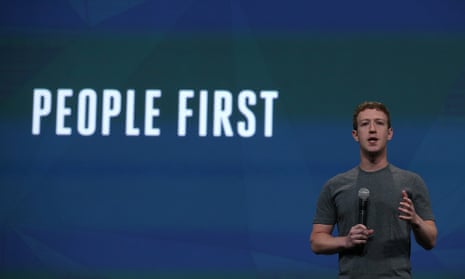Have you ever been to a cocktail party to learn how to freeze your eggs?
They exist. Companies like EggBanxx host egg freezing-themed cocktail parties targeting career women. Companies like Facebook and Apple are jumping on the bandwagon.
What they don’t tell you at the parties or in the HR materials: freezing your eggs may sound like a cool way to defer motherhood, but it’s anything but foolproof. When eggs are frozen, it seems to harden them, making later fertilisation trickier. The new process, known as “vitrification”, helps address some of the problems, but it’s new. As fertility clinics point out, there’s no data showing that women can store their eggs for years, successfully thaw them, fertilise them and have a baby. Oh, and the success rate? One study calculates that the “best estimate of the baby per egg rate for vitrification as currently practiced … is 6.6%”, with younger women harvesting their eggs and storing them for shorter time periods having much better odds.
Yet egg-freezing is what Facebook and Apple are willing to underwrite as a plausible alternative to putting a career on hold to have children.
As a matter of emphasis, this fails.
There are plenty of things companies in Silicon Valley could be doing to make life easier for their female employees, if executives really wanted to. They could address the question of unequal pay: men with graduate or professional degrees earn 73% more than do women with the same qualifications, according to a study by Joint Venture Silicon Valley. (Believe it or not, that’s an improvement.) They could make their top executive ranks or boards more diverse – Silicon Valley and the United States as a whole lag well behind the rest of the world.
If retaining female employees is a goal, these tech companies could start by hiring more women, who remain a minority population on Silicon Valley tech campuses, despite making up roughly half the country’s population.
To better the odds that women will find their companies attractive places to recruit, they can make efforts to tweak the corporate culture, exemplified at its worst by comments like those of Microsoft’s CEO, Satya Nadella, who advised women not to ask for raises and just trust to the system and “karma” to get you what you need.

Companies could pay attention to the experiences of company founders like Rebecca Hwang. At Silicon Valley networking events, she explained to Forbes, people ask her whether she is “really” the CEO, and investors suggest that she bring a man with her to fundraising meetings.
Tech companies could even make it easier for those female employees that they do have to juggle life/work issues by helping out with probably the single biggest headache most working women will confront during their lives: childcare.
Instead, what Apple and Facebook thought would be a really excellent, very good, super-fantastic, wonderful idea for their female employees turns out to be wildly off-key.
What it boils down to is a payoff to serve the company’s interests. You’re in your late 20s, starting to really think about what all the data about declining fertility mean for you, personally, because you’ve finally got time to think about whether or not you want to become a mother. All things being equal, however, your employer would really prefer that you didn’t make that choice.
So, Facebook and Apple now will cover the costs of harvesting your eggs and freezing them – a “fertility perk” worth up to $20,000. When you’re ready, just thaw ’em out, fertilize ’em, implant ’em and bingo – you’re a mom!
Of course, it’s not that easy. Even if you freeze your eggs when you’re only 25, the odds are only 31.5% that you’ll have a baby after three cycles of IVF – defrosting the egg, fertilising it and implanting it. And the cost of three cycles, atop the cost of harvesting and storing the eggs, would exceed the sum being covered by Facebook and Apple. If you’re 30, the probability drops to 25.9%, and only 19.3% by 35. It’s an expensive Hail Mary play, even if your employer is underwriting some of those upfront expenses.
Perhaps the only thing that could have made this explicitly financially worthwhile for most aspiring Silicon Valley female executives is also the only thing that could have made it even more controversial and more ill-conceived than it actually was. Had Facebook or Apple offered a quid pro quo to women in exchange for taking this risk with their fertility, the transaction would at least have been an explicit tradeoff: “You agree to bank your eggs until the age of 40 or 45, and we ‘fast-track’ you, with preferential access to raises and promotions.” At least that would have been intellectually honest, since that is what many women who actively choose to defer motherhood in order to focus on their career are hoping for, anyway. The companies, in turn, are looking for employees – both men and women – who are prepared to devote their lives to the business, 24/7. Children, especially babies, interfere with that.

Not every woman can be Sheryl Sandberg, Facebook’s chief operating officer, able to walk out the door at a specific time every day to have dinner with her family. (Having just sold her Silicon Valley mansion for $9.25m, she can also afford a lot of help if she doesn’t make it home on time, and I’m pretty sure someone else is cooking that dinner.) Most working women who, like Sandberg, opt to have children instead of freezing their eggs, will find it much harder to perform that juggling act.
Where companies like Facebook and Apple could help more is by dealing with the single biggest real expense their employees – both male and female – who are parents must deal with: childcare. In Silicon Valley, according to a few sources now raising young children there, you need to be prepared for the reality that this will be your single largest expense after the mortgage.
Just how large it is depends on how you choose to handle it. A nanny will cost at least $20 an hour, or about $40,000 a year. Sending Junior off to a daycare centre might cost less, if you can find a place, but many families still compare the cost of daycare to the cost of financing a year’s education at a private college.
Even once the kids are in school, if you have the kind of job that, unlike Facebook’s Ms Sandberg, won’t let you leave to pick Junior up when classes end for the day, you’ll be forking over for after-school care or programmes. One friend of mine currently budgets $600 a month for that.
It isn’t that Facebook and Apple don’t offer some help with those costs. But rather than offering this costly and slightly bizarre incentive to postpone and possibly put at risk future fertility, why not simply ramp up what they are already doing? Facebook, for instance, could add an on-campus kids’ daycare centre to the doggie daycare it already offers its employees.
Sure, it’s not cheap, but it could outsource the management to reduce liability and overhead. Or, if the real objective is to ensure that their older employees can still become parents, why not subsidise the cost of repeated IVF treatments often needed by older women seeking to get pregnant? Or even fund the full costs of older women seeking to adopt?
Of course, if Facebook and Apple are really, truly serious about the de facto message that they are giving their employees – that it’s so difficult to combine parenthood and build a career in one’s 20s and 30s that they should think about deferring the former – then maybe they should contemplate offering their male employees the option of having reversible vasectomies. The day that something like that occurs is the day I’ll know that real equality has arrived in Silicon Valley.

Comments (…)
Sign in or create your Guardian account to join the discussion